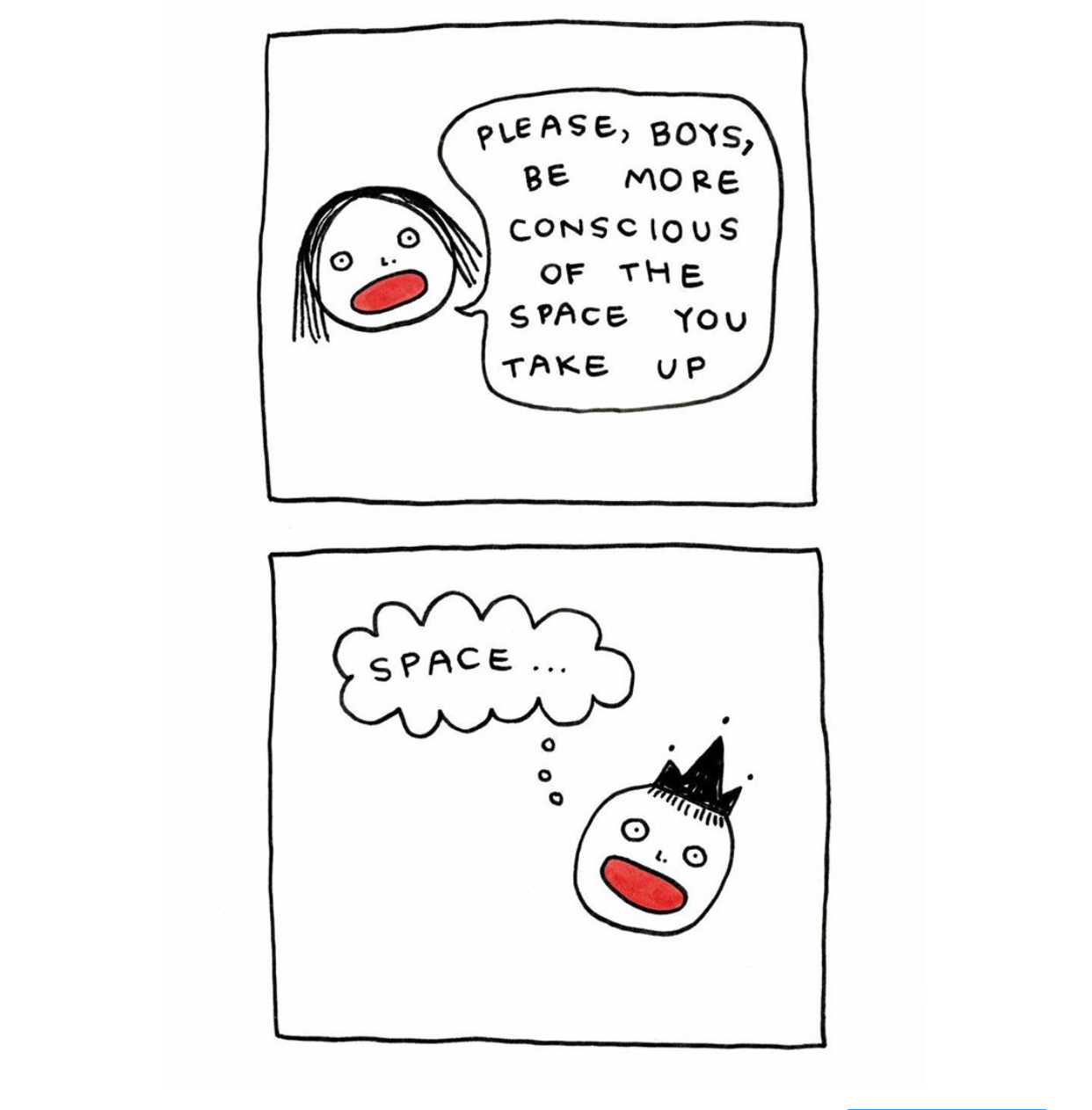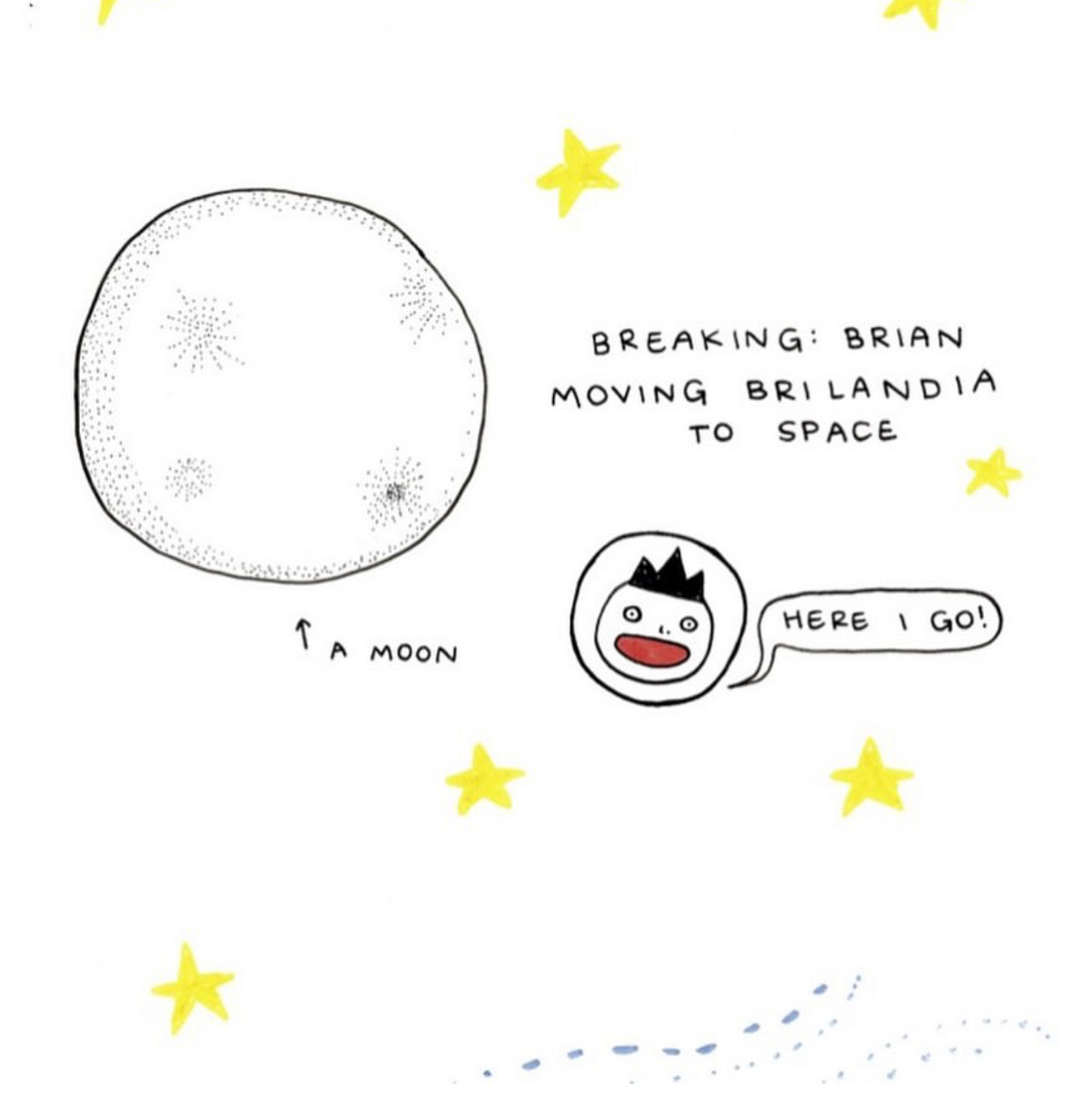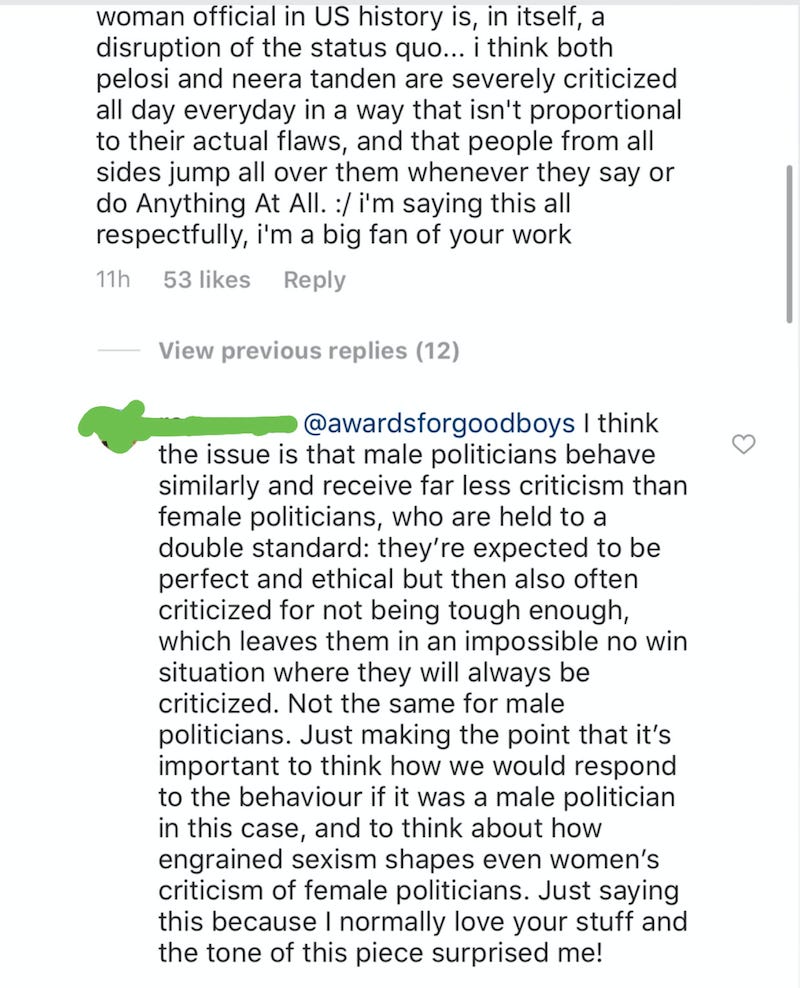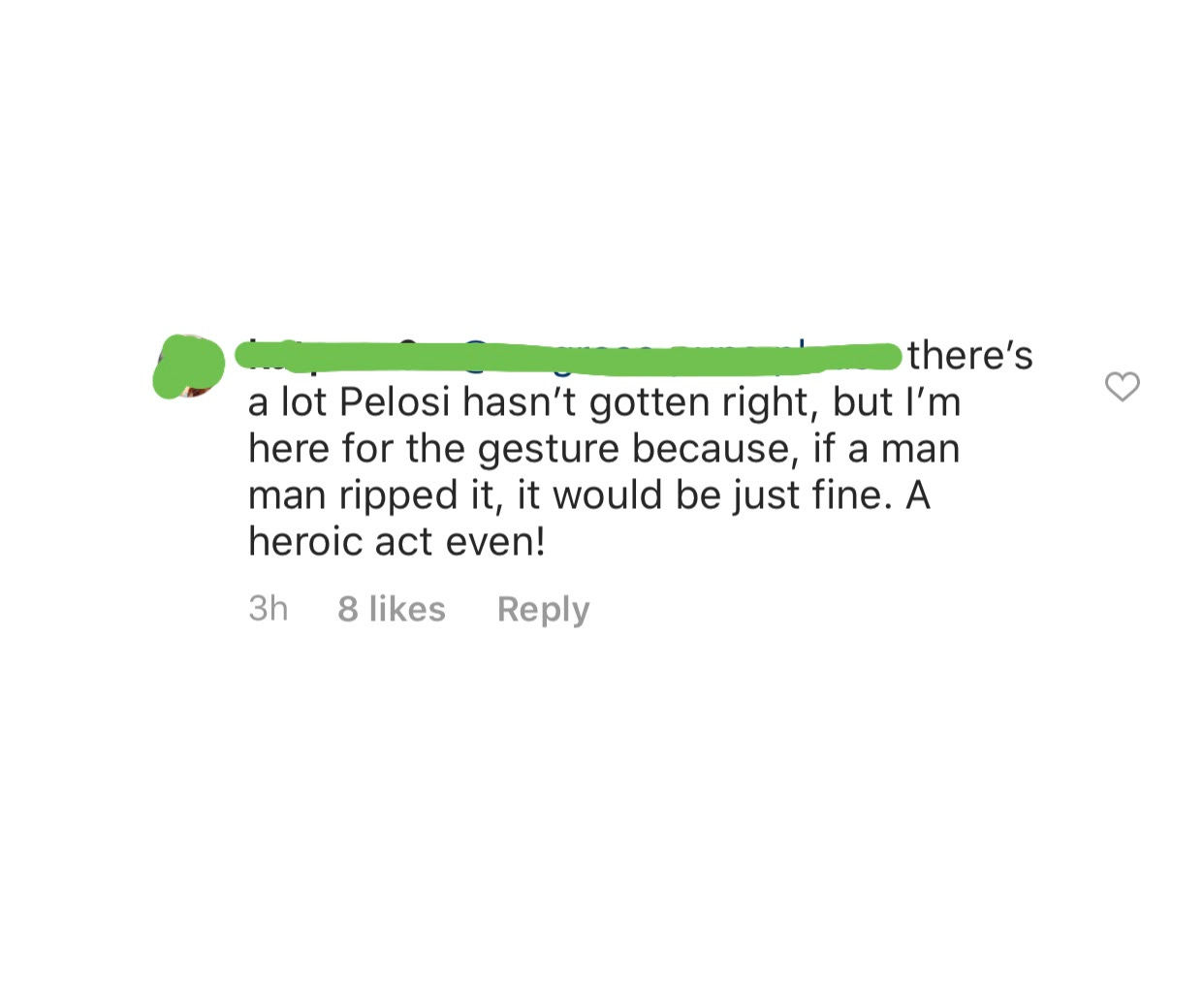Like most people who spend too much time on the Internet, my mind is a swamp. An absolute Puddle of Mudd.
This week, as a sort of side project for my brain to distract from *gestures broadly* everything, I have been ruminating about Taylor Swift—beloved pop star—Bret Stephens—bed bug and New York Times opinion writer who is extremely bad—and Jeanine Cummins—author of that terrible book (I have not read) that is getting all the attention. I’ve also been thinking about how politicians have fan cultures—I guess Mitt Romney is a hero now!!!! Our brave boy! —and how we perceive this. (I often refer back to “How Fan Culture is Swallowing Democracy,” a nine-part series on the subject by Amanda Hess, and this is very much on my mind.)
The reason these people are stuck in the current swamp is because 1) they are sort of floating like algae on top of a certain corner of the Internet and 2) they seem to represent a few different phenomenons. Or, they do in my brain! The throughline for these people is something about being unable to distinguish criticism from harassment and the rise of “stan” culture, even—or especially—in regards to politicians.
Roslyn Talusan writes about stan culture a lot, both in regards to her own experiences with a certain vicious fanbase and more broadly. In this piece she defines that while fandoms—even rabid ones, see Beatlemania—are nothing new, it’s clear the internet has dissolved necessary boundaries between audience and creator, in a way that can become dangerous for anyone who dares challenge a *checks notes* famous pop star or politician who has no idea you exist. “For stans, their identity and self-esteem are directly tied to the success of their idol,” she writes. This can lead to unsavory behavior for the people defending their idol, and can encourage said idol to weaponize the stans, intentionally or not. It’s not in celebrities best interests to say “please no.” Stans garner attention, money, repeated pleas to stream downloads. They are a nebulous, undulating mass of free publicity. Why would they want them to stop?
Taylor, like any very famous pop star, has stans. I have encountered them, after posting cartoons about Taylor’s newfound political agenda a few years ago (time is a flat circle apparently). I was met with a visceral reaction, reminded that I, like Taylor, was a white woman (I had forgotten!) and told I was petty, rude, and—sadly—being torn apart by my “internalized misogyny.” Can a woman critique another woman without it needing to be pathologized by those who are hell-bound to protect her and who do so loosely in the language of Mainstream Feminist Girl Bossism? Unclear.
Taylor rises to the surface, probably just because it’s the least grim to think about, and also because of the Netflix documentary that just came out. I haven’t watched, but I did receive a text “Shelby you have to watch this her whole thing is about needing to be perceived as good.” She also embodies what B.D. McClay writes about in this great essay “a decade of sore winners.” Though the essay is not just about Taylor Swift, there’s a great part about her… dogma: “Swift is always being betrayed by somebody, or in some cases, anticipating such betrayal… She is always rising — above the haters, up from the dead, in fame — even when she doesn’t seem to have any space left to rise to.”

Image ID: A girl says “please boys, be more conscious of how much take you space up.” Below, a good boy wearing a crown has a thought…. “space…”

Image ID: That same goodboy is now IN SPACE. there are stars around, a very detailed moon (wow great job shelby) and he says “here I go!” the text reads: breaking: Brian moving Brilandia to Space.
McClay continues: “She sings that she would be more respected if she were a man. Misogyny, like arsenic, is always floating around in the water, and in that respect, Swift is not completely wrong. She never really got the respect she deserved for writing her own songs and playing her own guitar, or carefully managing a crossover from country to pop without alienating her old fans. But at $360 million, at what point are we dealing with what amounts to small change?”
An important note my wise editor Lexie reminded me of is that putting people on pedestals this big is horrible for everyone, including the celebrity. Holding people as an emblem for everything, looking to them as your heroes, is dehumanizing—and flattens people on both sides: a big mass of stans, or the forever perfect idol incapable of doing wrong. People are fallible. To assume otherwise is absurd. Perhaps the obsession with protecting the moral integrity of celebrities is why “cancel culture” feels so loud even when it’s not a thing. Celebrities aren’t perfect. Fuck, celebrities have terrible opinions on most everything. They are just beautiful and famous and loud. We can love their work and also recognize they should not be the political voice of our times.
There’s also, of course, a profound difference between Taylor Swift, pop-star, and Nancy Pelosi, politician. It’s important to remember that while celebrities shape our world and ideas in so many ways, they are not the ones shaping policy. Making the “stanning” of politicians, or the clapping for them, even weirder.
I thought of this piece (the sore winners essay and also the space cartoon) this week particularly in regards to feedback I get when I post comics about women. That not completely wrong-ness of it all. Of course anytime you talk about someone who is not a cis-man the sentiment “well if a man did this” with the implication they’d be received differently is often not completely wrong. But it’s also often not completely right!

Image ID: A screenshot of a comment on awardsforgoodboys that (abridged) reads “I think the issue is that male politicians behave similarly and receive far less criticism than female politicians, who are held to a double standard: they’re expected to be perfect and ethical and then also criticized for not being tough enough….just saying this because I normally love your stuff and the tone of this piece surprised me!”
I posted a comic, one I originally made for Taylor (woops) to comment on the fact that Nancy Pelosi’s latest meme-able moment (ripping up the State of the Union) was just a paper rip. I.e. think whatever you want of it, but when you share it as a GIF reaction and pretend she’s saving the world you ignore, uh, everything else. I’m less interested in unpacking that and more curious about the fact that apparently Nancy Pelosi has stans, or people willing to defend her to me, which I found fascinating.

Image ID: a comment that reads “there’s a lot Pelosi hasn’t gotten right, but I’m here for the gesture because, if a man had ripped it, it would be just fine. A heroic act even!
Here for the GESTURE! Oh the hollowness! It is somehow so deep!
But ok, the gist of much of the feedback was good: Nancy gets outsized criticism because she’s a woman. Yes. Agree. Is it true, that misogyny is always floating in the water? Of course. Is it true that a man would be received differently, perhaps awarded for this unheroic deed if he did the same? Why, yes. I’d agree. Does that truth preclude us from talking about women, especially women in power, women who always seem to be rising even when there is nowhere left to rise?
So how do we stop idolizing people? How do we disentangle our feelings about these people for whom we’ve developed parasocial relationships? I think a lot of it, honestly, is accepting that people are fallible. That means not clapping (hello) for people when they do the right tweet, and it also means not “cancelling” (a myth, everyone, read Hagi on it) people immediately. It means recognizing that putting people on a pedestal is not a way to guard them from being criticized, it is merely a way to set both you and your idol up for failure. When you sculpt the version of the person you want to worship (ahem) in lieu of engaging with the actual substance, you will always, sooner or later, watch them spectacularly fall, if only when they remind you they are embodied + fallible, flesh and blood.
Links + tweets + things, i.e. what else is sitting in the swamp:
OB-GYNs Are Using Reddit To Help People Who Desperately Need Advice by Kristen Bahler
“She’s the moderator of r/obgyn, a buzzing home for redditors seeking guidance about their bodies and health concerns at a moment when funding blocks have led to staggeringly few sexual wellness resources, and anti-abortion legislation in many states swings from ultra-strict to medically impossible (like a recent Ohio bill requiring doctors to “reimplant” ectopic pregnancies, a procedure that can’t actually be done).”
Related: What the Medical GoFundMes That Don’t Get Funded Say About America
We Aren’t Alone: On TikTok, Black Girls Find Visibility—And Racist Hate by Natelegé Whaley
“In 2018, Amnesty International and Element AI found that Black women on Twitter were 84 percent more likely than white women to receive hateful tweets. Black women also face plagiarism and erasure, impersonation, and blackfishing. Despite this harassment, Black women online are thankless innovators adding much-needed color and flavor to digital cultural spaces. In 2018, Erin L. Berry-McCrea wrote in a Duke University press article titled ‘Black Millennial Women Speaking Truth to Power in and across the Digital Landscape.’ Actions such as vocalizing disdain through various social media platforms in original and repurposed (reposted) posts, comments, and ‘likes’ showcase Black women utilizing digital resources as empowerment tools that push against these oppressive realities.”
Related: read this book.
Required Reading: The Book That Started, and Ended, It All by Emma Specter
“Home is a chronic matter of wanting. Of forcing desire, despite itself, into a shape—one with a beginning, middle, and end. It’s about futurity,” Low writes in Socialist Realism. As I neared the end of the book and the New York streets started darkening earlier, I slowly figured something out: You can’t build something real with an unwilling partner, no matter how much of the load you’re prepared to carry.

Good tweet from Sarah, follow her on IG.
Beyoncé Wrapped Capitalism in Orange Boxes and Called It Empowerment by Najma Sharif
“In some ways, it’s a smart marketing technique to use the star power of Zendaya or Megan the Stallion to expose a line to their respective fan bases. There’s nothing new about celebrities receiving free merchandise; it’s a marketing tactic in a world where celebrities are brands. In the age of macro-influencers (who can double as celebs) and micro-influencers (who appeal to niche audiences), brands strategically reach out to people who will expose their products to potential consumers and, based on audience engagement, possibly make a return on their investment. Making money is always the end goal, but for a celebrity like Beyoncé who has made inclusivity central to her brand, this tiered marketing schema not only reinforced a hierarchy, but highlighted our collective investment in celebrity.”
Photo of my dog:

Image ID: Clementine wears her little sweater and is, yet again, in the mole hole. she is on her back with her eyes closed in what can only be described as absolute bliss.

Image ID: A photo of my dog at a party on a stranger’s lap where she is eating a bone. She is eating a bone on a stranger.
Xo,
Shelby + Clemb


